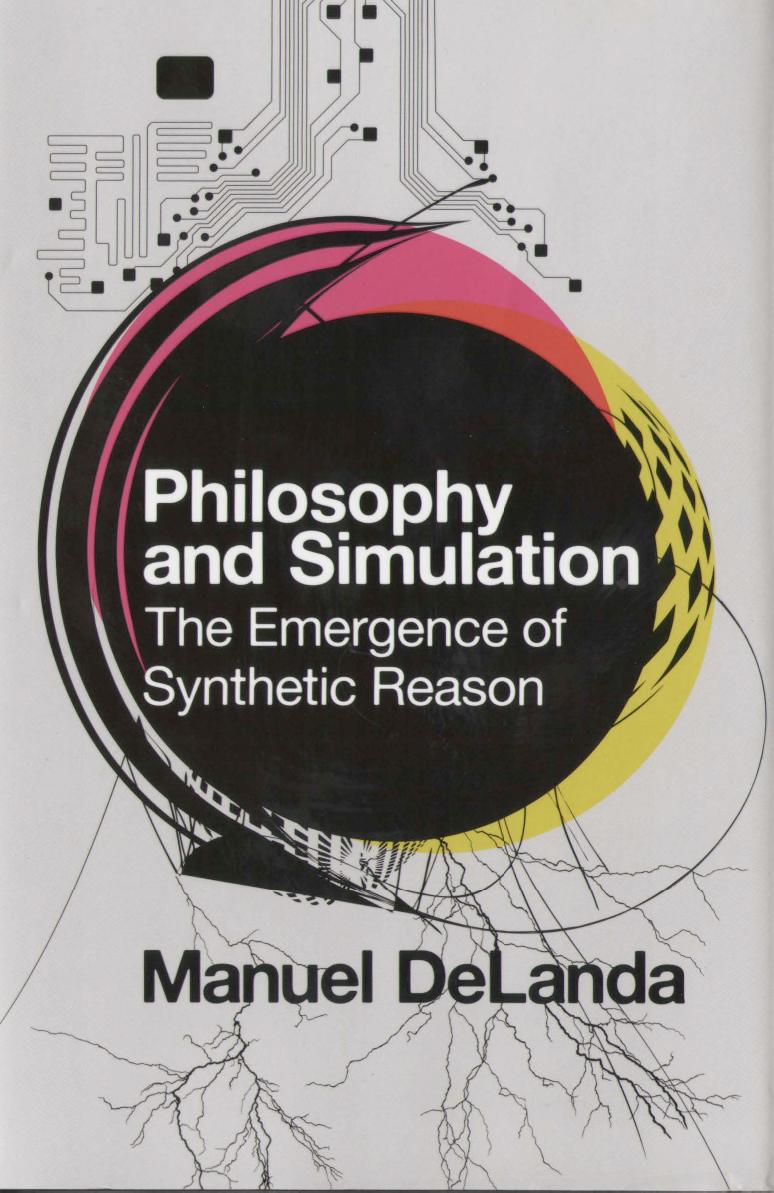Philosophy and Simulation: The Emergence of Synthetic Reason by Manuel DeLanda

Author:Manuel DeLanda [DeLanda, Manuel]
Language: eng
Format: epub, pdf
Publisher: Bloomsbury Publishing
Published: 2011-01-05T03:00:00+00:00
Chapter Eight
Multiagents and Primate Strategies
As the psychological life of animals became richer and their behavior increasingly determined by their membership in a community their interactions provided the medium for the rise of a new kind of entity, social strategies, and generated new possibility spaces in which the singularities defined sets of mutually stabilizing strategies. Although some insect species have an elaborate social life within colonies or hives their interactions do not involve recognition of individual conspecifics and take place by indirect communication, that is, by alteration of the physical and chemical properties of a shared environment. Monkeys and apes, on the other hand, are capable of recognizing each other not only as unique individual organisms but also as belonging to a certain kinship group and occupying a given rank in a dominance hierarchy. The likelihood that a young monkey or ape will start a fight with another, for instance, depends not only on memories of the outcomes of previous aggressive encounters but also on the presence or absence of an older relative acting as a social ally. Other examples of the kind of social problem-solving performed by these animals include coalition formation—a lower ranking animal may be able to challenge a rival if he or she has previously established an alliance with a higher ranking one—as well as reconciliatory behavior to undo the damage of previous aggressive encounters.1 The observed social capacities of contemporary non-human primates provide us with the best guide to speculate about how our last common ancestors could have affected (and be affected by) one another. More specifically, they provide us with insight into the mechanisms behind the emergence of reciprocal altruism, a social interaction involving the exchange of favors in which there is a temporal delay between the provision of a service and its reciprocation. Reciprocal altruism, in turn, may have been the point of departure for a long process that would eventually lead to the emergence of communal solidarity in ancient hunter-gatherer communities.
Solidarity in contemporary human communities acts as a social gradient that varies among different groups endowing them with different capacities for political mobilization and other forms of collective social action. The mechanism of emergence of solidarity in these communities depends on the existence of a dense network of connections among their members. In a community in which everyone knows everyone else word of mouth travels fast, particularly if the subject of conversation is the transgression of a local norm: an unfulfilled promise, an unpaid bet, an unreciprocated favor. This rapid transmission of linguistic information allows the community to act as a reputation-storage mechanism. If in addition ridicule and ostracism are used to collectively punish those who dishonor commitments then the community has the capacity to act as an enforcement mechanism. The question to be explored in this chapter is how the transition between the reciprocal altruism of the common ancestors of humans and chimpanzees and the communal solidarity of the earliest hunter-gatherers could have occurred without the use of linguistic resources. Some experts
Download
Philosophy and Simulation: The Emergence of Synthetic Reason by Manuel DeLanda.pdf
This site does not store any files on its server. We only index and link to content provided by other sites. Please contact the content providers to delete copyright contents if any and email us, we'll remove relevant links or contents immediately.
| Anthropology | Archaeology |
| Philosophy | Politics & Government |
| Social Sciences | Sociology |
| Women's Studies |
The remains of the day by Kazuo Ishiguro(8999)
Tools of Titans by Timothy Ferriss(8394)
Giovanni's Room by James Baldwin(7346)
The Black Swan by Nassim Nicholas Taleb(7129)
Inner Engineering: A Yogi's Guide to Joy by Sadhguru(6794)
The Way of Zen by Alan W. Watts(6614)
The Power of Now: A Guide to Spiritual Enlightenment by Eckhart Tolle(5781)
Asking the Right Questions: A Guide to Critical Thinking by M. Neil Browne & Stuart M. Keeley(5775)
The Six Wives Of Henry VIII (WOMEN IN HISTORY) by Fraser Antonia(5515)
Astrophysics for People in a Hurry by Neil DeGrasse Tyson(5189)
Housekeeping by Marilynne Robinson(4447)
12 Rules for Life by Jordan B. Peterson(4304)
Ikigai by Héctor García & Francesc Miralles(4274)
Double Down (Diary of a Wimpy Kid Book 11) by Jeff Kinney(4271)
The Ethical Slut by Janet W. Hardy(4251)
Skin in the Game by Nassim Nicholas Taleb(4248)
The Art of Happiness by The Dalai Lama(4130)
Skin in the Game: Hidden Asymmetries in Daily Life by Nassim Nicholas Taleb(4006)
Walking by Henry David Thoreau(3962)
